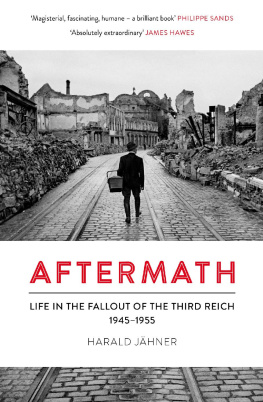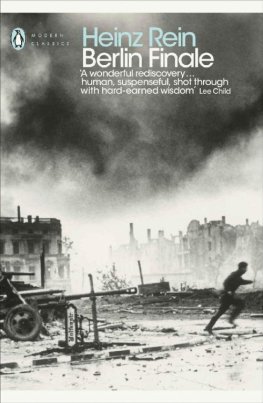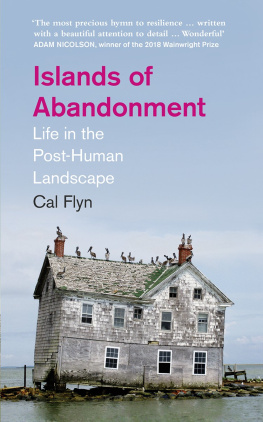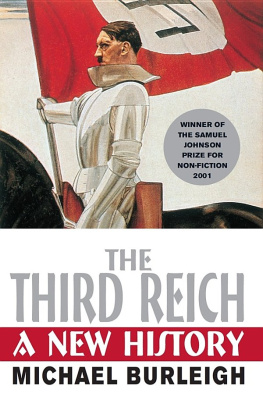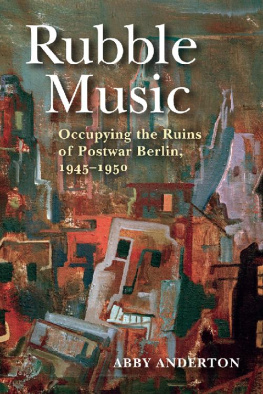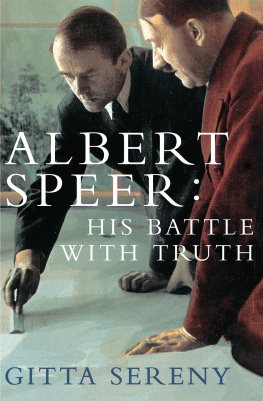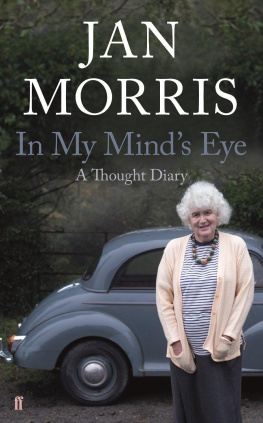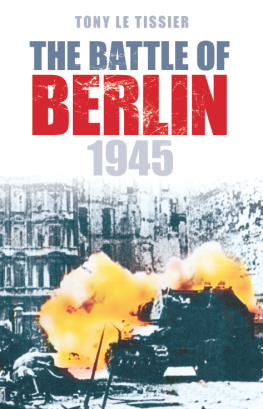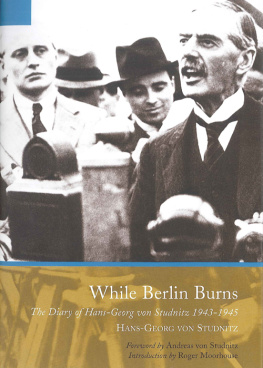Harald Jhner
AFTERMATH
Life in the Fallout of the Third Reich 19451955
Translated by Shaun Whiteside
Contents
About the Author
Harald Jhner is a cultural journalist and former editor of the Berliner Zeitung . He was also an honorary professor of cultural journalism at the Berlin University of the Arts.
Aftermath was first published in Germany as Wolfszeit , where it was a Spiegel bestseller and won the Leipzig Book Fair Prize for non-fiction.
Praise for Aftermath
Magisterial, fascinating, humane a brilliant book of the greatest importance and achievement
Philippe Sands, author of East West Street and The Ratline
What does total defeat mean? Germany 194555. Ten years of poverty, ruins, fear, violence, black markets, manic hard work, inventive sex and always, always, silence about the murdered millions of the Third Reich. A fascinating read
Neil MacGregor, author of Germany: Memories of a Nation
For those who want to understand the Germans, Aftermath is essential reading. An engrossing book on all counts, Jhners analysis of peoples response to the Nazis monstrous crimes and how perpetrators and victims merged into a new nation is especially compelling. Anyone with even the slightest interest in history and the human condition should read this book
Julia Boyd, author of Travellers in the Third Reich
Harald Jhner claims to have discovered a hole in the heart of modern German history. This book triumphantly proves him right. It is absolutely extraordinary. Every page stops you dead with insight and revelation. The facts so often glossed over are shockingly grim, yet the dominant tone is one of bleak farce. The human comedy, we discover, plays on, even in a land reduced to physical and moral rubble. And from that abiding truth Jhner draws, in the end, a contrary sort of hope
James Hawes, author of The Shortest History of Germany
A fascinating account of a forgotten moment in Europes history, of utter desperation leading to tentative hope
Simon Jenkins, author of A Short History of England
An extraordinary book of breathtaking scholarship. Jhner shines a light on a dark and almost forgotten period of German history to find it pulsating with life. As we emerge from a pandemic, this story of love and loss and how a shattered society rebuilt itself after the war could not be more timely
Jack Fairweather, author of The Volunteer
A fiercely compelling book that brings vivid illumination to an era of twilight and brutal ruins. This is not just a history of a time and a place: rather, Harald Jhner beautifully explores the hinterland of human nature in all its shades
Sinclair McKay, author of Dresden: The Fire and the Darkness
Many consider the years before 1945 to be the most crucial in understanding Germany and the Germans. Wait until you have read this book
Norman Ohler, author of Blitzed: Drugs in the Third Reich
Harald Jhners deeply researched, panoramic account of how Germany rebuilt and discovered itself from 19451955 is an eye-opening, thrilling read
Bernhard Schlink, author of The Reader
Rarely has a non-fiction book so skilfully combined vividness, drama and eloquence
From the Jurys reasoning for the Leipzig Book Fair Prize for Non-Fiction
Jhners gripping X-ray-vision tale of an often overlooked and misperceived phase of German history reveals, like all great history books, as much about the first decade after the war as about today
The German Times
Picture credits
Frontispiece: in Reinhard Matz, Wolfgang Vollmer: Kln und der Krieg: Leben, Kultur, Stadt. 19401950 . Kln 2016
ullstein bild Rhnert
Sueddeutsche Zeitung Photo/Alamy Stock Photo
SLUB/Deutsche Fotothek, Richard Peter sen.
picture alliance/ZB/Richard Peter Jun
Hermann Claasen, Fronleichnamsprozession, Kln 1945 . Fotografische Sammlung LVR-landesmuseum Bonn, Photo: Jrgen Vogel
Mnchner Stadtmuseum, Sammlung Fotografie, Archiv Relang
Josef Stoffels/Fotoarchiv Ruhr Museum
Anja Elisabeth Witte/Berlinische Galerie ( DACS 2021)
Public domain, from United States Army Preventive Medicine in World War II ; Office of the Surgeon General, Department of the Army, Washington, D.C. (1969)
dpa-Bildarchiv
Landsberger Lager Cajtung, 8. Oktober 1945
Stadtarchiv Geretsried, Photo by Gnther Fechner
Fred Ramage/Hulton Archive: Getty Images
Bundesarchiv, Bild 183-P0506-507/Herbert Blunck
Heinrich Sanden Sr/AP/Shutterstock
Hermann Claasen, Die berfllte Strae, Karneval 1949 . Fotografische Sammlung LVR-landesmuseum Bonn, Photo: Jrgen Vogel
in Neue Illustrierte , vol. 3, no. 3 (6 February 1948)
dpa-Report
bpk/Hanns Hubmann
picture alliance/akg-images
Neue Illustrierte , vol. 2, no. 21 (7 October 1947), Photo: Jrg Bohn
Neue Illustrierte , vol. 2, no. 34 (16 December 1948), Photo: Jrg Bohn
bpk/Hanns Hubmann
akg-images/Sammlung Berliner Verlag/Archiv
akg-images/Tony Vaccaro
picture alliance/dpa-Zentralbild
akg-images
ullstein bild Georg Schmidt
DND , vol. 3, no. 9, 3/4 (1948/49)
Archive Willi Luther
ullstein bild Rhnert
bpk/Benno Wundshammer
in Der Spiegel 44/1954
ullstein bild Abraham Pisarek
akg-images
Der Spiegel 44/1947 ( DACS 2021)
akg-images/Willi Baumeister ( DACS 2021)
documenta archiv/Photo: Werner Lengemann ( The Pollock-Krasner Foundation ARS, NY and DACS, London 2021.)
ullstein bild Rhnert
Berlinische Galerie/Sergius Ruegenberg
National Archives, College Park/MD, USA
Bundesarchiv, Bild 183-V00197-3
Office of Military Government for Germany, US (OMGUS)/Haus der Geschichte, Bonn
Text credits
Gnter Eich: Inventur, from idem ., Gesammelte Werke in vier Bnden. Band I: Die Gedichte. Die Maulwrfe. Suhrkamp Verlag, Frankfurt am Main 1991. All rights Suhrkamp Verlag Berlin.
Elisabeth Langgsser: Kalte Reise in die Fassenacht, in: Merian, Stdte und Landschaften, Mainz . Vol. 2, 1949, No. 3.
Erich Kstner: Marschlied 1945, from: idem ., Der tg liche Kram . Atrium Verlag AGs Zrich 1948, and Thomas Kstner.
Preface
On 18 March 1952 the Neue Zeitung published an article by the author and editor Kurt Kusenberg entitled NOTHING CAN BE TAKEN FOR GRANTED: PRAISE FOR A TIME OF MISERY . Only seven years on, the author yearned for the weeks of confusion that had followed the end of the Second World War in Germany. Even though nothing had worked at the time not the postal service, the railways, public transport in spite of the homelessness, the hunger and the occasional corpse that still lay buried under the rubble, in retrospect those weeks struck him as having been a good time. Like children, he wrote, people after the war had begun to mend the torn net of human relationships. His choice of words is unusual and perhaps a little disconcerting Like children?

